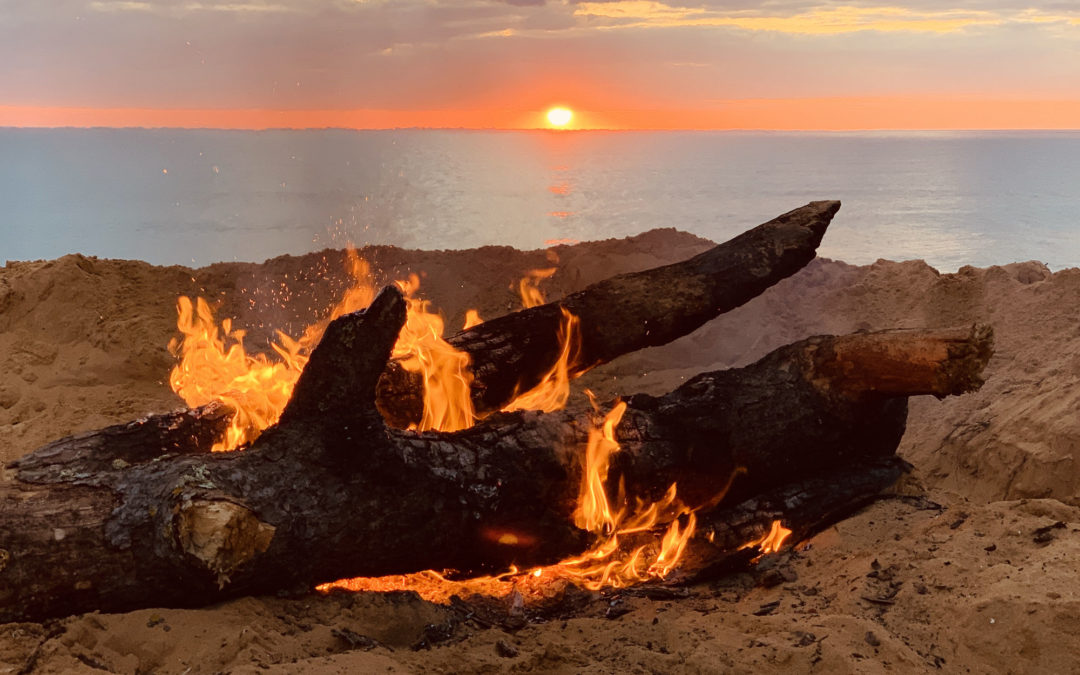...and is available to us indefinitely." - Franz Alt





Our day today is all about self-sufficiency. - Already when waking up the first thought is to set up the solar bag. No sooner said than done, because without an energy supply our battery will be at its limit by tomorrow at the latest. - The first look at the solar yield shows that there is still a lot to optimize. So we turn our Offgridtec© FSP 2 Ultra 120W foldable solar module dutifully with the sun. The integrated elevation helps a little bit. But it seems better to mount the module to a tree and rotate with the sun. The solar cells are supposedly from Sunpower. Via the included Victron SmartSolar 75/15 MPPT charge controller, the generated energy flows directly into the battery. Via Bluetooth, the charge can be monitored on the iPhone.
With its dimensions of 560 x 440 x 20mm when folded, there is even a little room in the Hector. The stated weight of 2.7kg seems to me to be measured without the cable. - But either way, the whole thing is fun. I spontaneously think of the above quote, which I would like to add. - ... and makes not only self-sufficient, but free.



We are really having fun with this project. Especially since, compared to some campers with their flat roof modules, we have the advantage of being able to set up our solar bag in such a way that it is still effective, despite the flat sun. For us, at the end of the evening, it means we can spend an extra day on the beach. Water and electricity, these have become elementary issues for us. They mean freedom and independence.
Otherwise, the day goes by rapidly. My sports interlude today is in tree sawing. Together with our Swiss neighbor we saw a whole tree. - Because we want to light a campfire tonight. In between with the dog scuffle and again and again the pannel move. When the sun goes down, we have 470 Wh (watt hour) generated. Maybe it doesn't sound much, but a 50 watt bulb could provide more than nine hours of light. - This still needs to be optimized a bit. (Note from Torgit: No, the tree was not cut down for the campfire, but fell down during the last storm. So they say.)
I had planned to report a little on my reading material as well. On the one hand, we have looked at two more issues of the
book series, Inspector Dupin, by Jean-Luc Bannalec. These Brittany crime novels are just too beautiful. A tribute to Brittany and especially to the Bretons. - In the meantime, I have almost reached the end of the fourth volume, Breton Pride. This time it has taken the inspector into the world of oyster farmers. Volume three, Breton Gold is set in the world of salt marshes on the Guérande Peninsula. The world-famous fleur de sel is in the air. But the world of the salt workers doesn't seem quite so wholesome. Volume two, Breton Surf is set on the Glénan Islands. The descriptions of the islands alone, with their supposedly white sand, crystal clear waters as a sort of Caribbean paradise, should be reason enough to take another look. Because by the time I read this novel, we had already left Brittany. Volume one Breton Circumstances is set in the artists' village of Pont Aven. The mystery makes you want to go to Brittany so much that it should be required reading for anyone who intends to visit. (Note from Torgit: Unfortunately, we had such bad weather in Brittany that we quickly moved on. Visiting the islands makes no sense in the rain. But we definitely have to go there again. With better weather).
In the meantime, as you know, we are in Portugal. From my point of view, this also includes having read a book by Fernando Pessoa. After all, he is one of the most important lyricists in Portugal.
For me, this was reason enough to search our bookshelf in Cologne for a very specific book. Because there's a book by Pessoa there that I'm particularly taken with. When two friends, independently of each other, recommend a book to you, you should read it. For me it was "An Anarchist Banker". Both my friend of many years Uwe from Berlin, and my old Hortenführer with the Wandervögeln Tabbu, or in real life Holger, gave me this book almost at the same time. Could be because both are old revolutionaries at heart.
The book describes, in a kind of monologue, a conversation between a businessman and banker, which he has one evening with a guest in his house. The same guest questions that he had heard that his host had been an anarchist in the past. Contrary to all expectations, the latter not only openly admits that this is the case, but also explains that he is still a convinced anarchist today. His guest is, of course, appropriately puzzled as to how the life of a banker can be reconciled with that of an anarchist. The banker explains why he was almost forced to become rich in order to continue to represent his ideals. His chain of reasoning seems so real that in the end one thinks that the true anarchist must become a banker, the true banker is a consistent anarchist.
I find this book so exciting, on the one hand, because revolutionary thinking and money seem to be compatible. On the other hand, because it was written under the impressions and political turmoil of the young Portuguese Republic. The book was published in 1922. As recently as October 1921, troops of the republican National Guard GNR had attempted an overthrow of the government.
So we can be glad that today's GNR is only a danger for us, in terms of a parking ticket for wild camping.


Today we enjoy the sunset around the campfire. Time for whiskey, a good cigar. Also a kind of meditation.
Realization of the day: Sitting on the beach is nice, sitting by the fire too, combining both is ultra nice.


Recent Comments